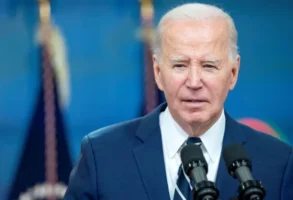
Published November 27, 2023
On October 4, 2023, the U.S. Department of Health and Human Services’ Administration for Children and Families (ACF) proposed new regulations “relating to the key aspects of the placement, care, and services provided to unaccompanied children” by the Office of Refuge Resettlement (ORR). The proposed rule titled, “Unaccompanied Children Program Foundational Rule,” is open for public comment until Monday, December 4, 2023.
Placements
Under the proposal, “ORR shall place each unaccompanied child in the least restrictive setting that is in the best interest of the child and appropriate to the unaccompanied child’s age and individualized needs,” provided that the setting is “consistent with the interest in,” among other things, “protecting the unaccompanied child’s well-being.” An unaccompanied child’s “best interest” is determined considering an “inexhaustive list of factors,” which include the child’s “identity,” “individualized needs,” and “expressed interests, in accordance with the unaccompanied child’s age and maturity.”
According to the rule, an unaccompanied child’s “LGBTQI+ status” (defined as “lesbian, gay, bisexual, transgender, queer or questioning, and intersex” status) is a relevant factor in placement considerations. ACF provides no explanation in the rule about how a child’s LGBTQI+ status should impact a placement. But in another proposed rule (published only a few days before this rule), ACF proposed that a “safe and appropriate” placement for “LGBTQI+ children” in foster care means that the provider must affirm the child’s LGBTQI+ identity; to do otherwise is considered “abuse.” It is almost certain that ACF will interpret this rule similarly—affirmation of an unaccompanied child’s LGBTQI+ identity will be required for a placement to be “appropriate” and in the child’s “best interest.”
The rule also directs ORR to consider an unaccompanied child’s “gender” for a placement; no reference is made to consideration of a child’s “sex.” “Gender” is not defined. While the term historically was used synonymously with “sex” to refer to whether a person is biologically male or female, it is more likely that the term “gender” here refers to a child’s subjective identity, which may not align with the child’s biological sex. Replacing “sex” with “gender” is consistent with the Biden administration’s position that a person’s identity, not their biology, is what matters, even when it comes to sex-specific designations and private spaces.
Medical Services
In addition to placements, the rule proposes that “ORR shall ensure that all unaccompanied children in ORR custody will be provided with routine medical and dental care; access to medical services requiring heightened ORR involvement, consistent with paragraph (c) of this section; family planning services; and emergency healthcare services.”
“Medical services requiring heightened ORR involvement” means: “(1) Significant surgical or medical procedures; (2) Abortions; and (3) Medical services necessary to address threats to the life of or serious jeopardy to the health of an unaccompanied child.” (The rule expressly excludes abortion from “family planning services.”)
Under paragraph (c), if ORR determines an unaccompanied child requires medical care or the child “reasonably requests” such care, the child must be placed with a provider that is able to care for the child and “is in a location where the relevant medical services are accessible.” If such a placement is not immediately available, or a medical need or reasonable request subsequently arises, then ORR shall, if possible, transfer the child to a provider that can accommodate the child’s medical needs.
Paragraph (c) also requires ORR to provide an unaccompanied child with transportation to access medical services, including across state lines if necessary, to ensure the child can access medical specialists, “care that may be geographically limited,” and medical services requiring heightened ORR involvement. The travel requirement applies “regardless of whether Federal appropriations law prevents ORR from paying for the medical care itself.”
Abortion
The rule explains that ORR will continue to permit an unaccompanied child access to abortion “consistent with limitations on the use of Federal funds for abortions which are regularly included in HHS’ annual appropriations, commonly referred to as the ‘Hyde Amendment.’” “Consistent with current policy” and a post-Dobbs memo by the Department of Justice Office of Legal Counsel titled “Application of the Hyde Amendment to the Provision of Transportation for Women Seeking Abortions,” ORR will facilitate access to abortion “regardless of whether the Federal Government may pay for the abortion under the Hyde Amendment.”
Many disagree with the Biden administration’s legal interpretation that Hyde permits federal funding of travel for abortion. As my colleague Natalie Dodson and I wrote for The Hill,
The Biden administration’s novel interpretation of the Hyde Amendment post-Dobbs is politically expedient and highly suspect. If the Hyde Amendment allows for abortion travel funding as the OLC opinion and the Biden administration suggests, it is surprising other pro-abortion rights Democratic administrations failed to recognize and capitalize on this giant loophole.
Medical Gender Transitions
While not expressly stated, medical services for “gender transitions” of unaccompanied children would also likely be considered “medical services requiring heightened ORR involvement” under definitions (1) and (3). Puberty blockers, cross-sex hormones, double mastectomies, and genital surgeries are fairly characterized as “significant surgical or medical procedures.” According to the Biden administration, such medical interventions are “life-saving” and “crucial” to a child’s “overall health and well-being,” which would qualify medical gender transitions as “medical services necessary to address threats to the life of or serious jeopardy to the health of an unaccompanied child.”
This interpretation is consistent with the proposed rule’s direction that ORR consider an unaccompanied child’s LGBTQI+ status and identity for placements, as well as actions by the Biden administration and HHS to promote so-called “gender affirming care” for children.
State Laws
Many states have laws prohibiting certain abortions or medical gender transition services for minors that may conflict with ORR’s obligation under the proposed rule to provide medical services requiring heightened ORR involvement to unaccompanied children. If a potential conflict arises between the regulations and state law, the rule directs ORR to “review the circumstances to determine how to ensure that it is able to meet its statutory responsibilities.” Notably, “if a State law or license, registration, certification, or other requirement conflicts with an ORR employee’s duties within the scope of their ORR employment, the ORR employee is required to abide by their Federal duties.” This language is reminiscent of the Biden administration’s position that the Department of Veterans Affairs (VA) interim final rule on abortion benefits allows VA staff to provide or facilitate abortions otherwise unlawful under state law.
Nevertheless, ACF claims there are not “sufficient federalism implications” to warrant a federalism impact statement under Executive Order 13132.
Religious Freedom and Conscience Protections
The preamble of the proposed rule repeats four times, without elaboration, that ORR operates its Unaccompanied Child Program “in compliance with the requirements of the Religious Freedom Restoration Act and other applicable Federal conscience protections, as well as all other applicable Federal civil rights laws and applicable HHS regulations.” There is no mention of religious freedom and conscience protections in the text of the proposed regulations. These protections will be especially important for providers and ORR staff who cannot facilitate abortions and medical gender transitions in accord with their religious beliefs or moral convictions.
Rachel N. Morrison is a Fellow at the Ethics and Public Policy Center, where she directs EPPC’s HHS Accountability Project. An attorney, her legal and policy work focuses on religious liberty, health care rights of conscience, the right to life, nondiscrimination, and civil rights.











